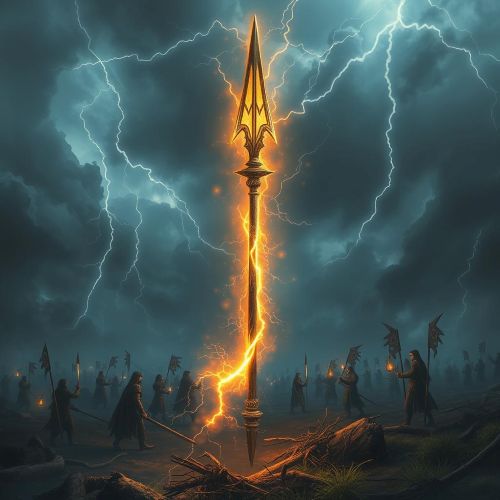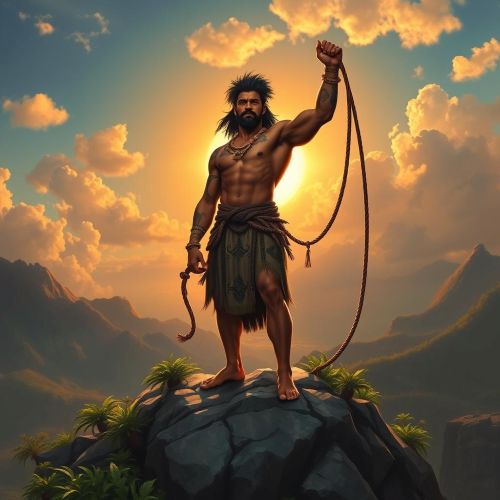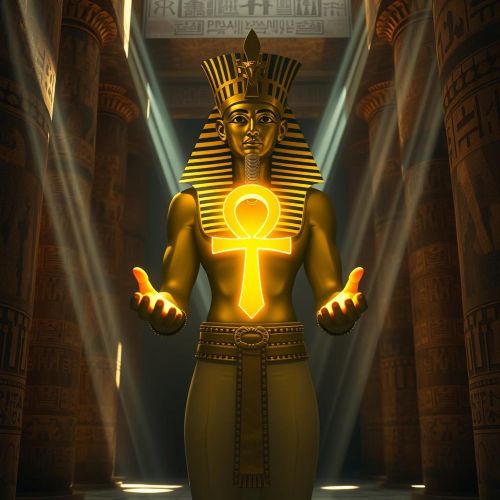Indra vs. Zeus: Exploring the Mythical Clashes of the God of Rain
The mythology of different cultures often includes gods associated with natural elements. In the realm of rain and thunderstorms, two prominent deities emerge: Indra from Hindu mythology and Zeus from Greek mythology. These powerful gods, each revered as the God of Rain in their respective cultures, share similarities and differences that shed light on the diverse ways ancient civilizations viewed the forces of nature. In this blog, we will delve into the fascinating stories and characteristics of Indra and Zeus, exploring how they personified rain and thunder in their mythologies.
Indra: The Vedic God of Rain
Indra is one of the most significant deities in Hinduism, and he holds a special place as the God of Rain. In Hindu mythology, rain is essential for agriculture and sustenance, making Indra’s role pivotal in the well-being of the people.
Characteristics of Indra:
- Thunderous Warrior: Indra is often depicted as a warrior riding a white elephant named Airavata. He wields a thunderbolt called Vajra, symbolizing his control over thunderstorms and rain.
- Defender of Dharma: In Hindu cosmology, maintaining order and righteousness (dharma) is crucial. Indra is seen as a protector of dharma and uses his power over rain to ensure the balance of nature.
- Challenges and Triumphs: Indra’s story is filled with epic battles against demons and other deities, many of which revolve around control of rain and thunder. His victories in these battles solidify his status as the God of Rain in Hindu mythology.
- Sacred Rituals: To appease Indra and ensure abundant rainfall, various rituals and festivals like Indra Puja are celebrated in India. These rituals demonstrate the importance of rain in agriculture and daily life.
Zeus: The Greek God of the Skies and Thunder
In Greek mythology, Zeus is the chief of the Olympian gods and holds dominion over the skies, including thunder and rain. He is often considered the counterpart of Indra, representing a different cultural perspective on the same natural phenomena.
Characteristics of Zeus:
- Mighty Ruler of Olympus: Zeus is the king of the Greek gods and resides on Mount Olympus. He wields a thunderbolt, which he uses to control lightning and storms.
- Protector of Justice: Similar to Indra’s role in upholding dharma, Zeus is associated with maintaining order and justice (dike) in the world. His control over rain and thunder reflects his authority.
- Epic Struggles: Zeus, like Indra, engages in epic battles, notably the Titanomachy and Gigantomachy, to establish his dominance. These conflicts often involve the use of thunderstorms and rain as powerful weapons.
- Festivals and Honors: The ancient Greeks honored Zeus with various festivals, including the famous Olympic Games. These celebrations reflected the importance of Zeus as a god of the skies and rain in their culture.
Comparing Indra and Zeus: The God of Rain Duel
- Domain of Influence: While both Indra and Zeus are associated with rain and thunder, their domains extend beyond this. Indra is specifically known as the God of Rain, emphasizing his role in ensuring a bountiful harvest, while Zeus is primarily recognized as the ruler of the skies and thunder, with rain being a natural consequence of his thunderstorms.
- Cultural Significance: Indra’s importance in Hinduism is deeply rooted in the agricultural traditions of the Indian subcontinent. Rain is a lifeline for farming in this region, and thus, Indra holds immense cultural significance. In contrast, Greek mythology and Zeus’ influence span a broader range of aspects in life, from governance to destiny.
- Symbolism: Both gods use thunderbolts as symbols of their power, but their interpretations differ. Indra’s Vajra symbolizes the fierce and immediate nature of rain and thunder in the Indian subcontinent. Zeus’ thunderbolt, on the other hand, represents the cosmic order and justice he upholds.
- Epic Stories: Indra’s battles against demons and the serpent Vritra are legendary in Hindu mythology, showcasing his prowess as the God of Rain. Zeus’ struggles include the overthrow of the Titans, portraying his dominance over the skies and thunder.
- Festivals: The rituals and festivals dedicated to these gods reflect their cultural and regional importance. Indra Puja in India and the Olympic Games in Greece highlight the distinct roles these gods played in their respective societies.
The tales of Indra and Zeus, the Gods of Rain, provide a fascinating glimpse into the diverse ways ancient cultures perceived natural phenomena. While both deities share commonalities in their association with thunder and rain, they differ in their cultural significance, symbolism, and stories. These distinctions remind us of the rich tapestry of human mythology, where the forces of nature are personified in unique and captivating ways.
Indra and Zeus, as Gods of Rain, demonstrate the profound impact weather and agriculture had on the lives of ancient peoples. They serve as enduring symbols of the human connection to the natural world, reminding us of the awe-inspiring power of rain and thunder in shaping our civilizations and belief systems.






